Aspiring to fight in the Ultimate Fighting Championship (UFC) is a dream for many martial artists, especially in Canada where MMA has deep roots. Let us walk you through how to get into UFC – covering the training, competitions, and pathways that can lead a Canadian fighter from local gyms to the Octagon. The journey is challenging, but many best Canadian UFC fighters have proven it’s possible. In fact, names you’d find on any top 10 Canadian UFC fighters list – like Georges St-Pierre and Rory MacDonald – all started from humble beginnings. With dedication and the right approach, you can follow in their footsteps.
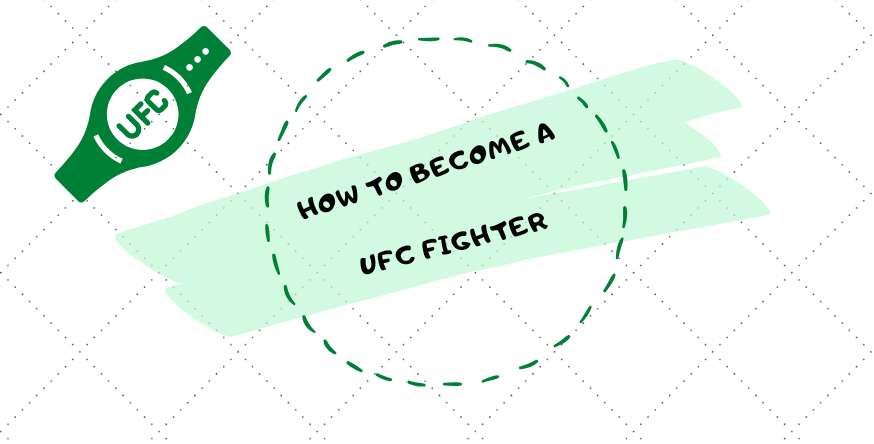
Start Training Early and Develop a Strong Foundation
To reach the UFC, you’ll need world-class fighting skills. This means starting training early and focusing on well-rounded development. Join a reputable mixed martial arts gym with experienced coaches who can teach you multiple disciplines (striking, grappling, wrestling, etc.). In Canada, gyms like Montreal’s famed TriStar Gym – home of Georges St-Pierre – have produced numerous champions under coaches like Firas Zahabi.
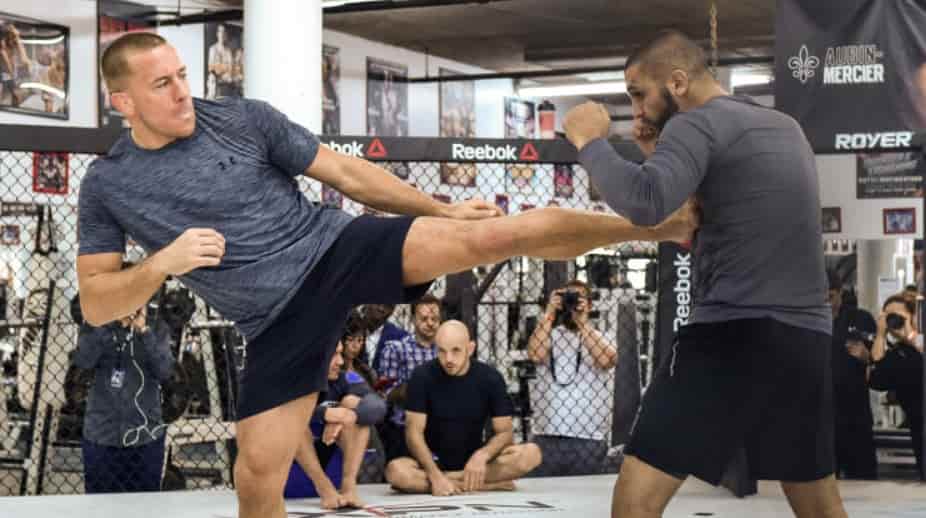
A good gym will provide quality sparring partners and guidance in everything from Brazilian jiu-jitsu to Muay Thai. Begin with a solid base (some fighters start with karate, wrestling, or boxing) and then cross-train to cover all aspects of MMA. As you progress, invest time in strength and conditioning, and consider competing in amateur bouts or grappling tournaments to test your skills in a controlled environment. Building a strong foundation early will prepare you physically and mentally for the competitive road ahead.
Compete in Amateur and Regional MMA Circuits
After honing your skills, the next step is to gain real fight experience. Start with amateur MMA competitions to get used to fighting in front of crowds and under pressure. Amateur circuits in Canada can help you build confidence and a fight IQ without immediately risking your professional record. Once you’re consistently winning at the amateur level, it’s time to turn professional and compete in regional promotions. Historically, Canada had a thriving regional MMA scene – so much so that UFC President Dana White once called Canada “the Mecca of MMA.” A decade ago, promotions like TKO Major League MMA (in Quebec) and Maximum Fighting Championship (MFC) (in Alberta) “fed a stream of talent to the UFC”.
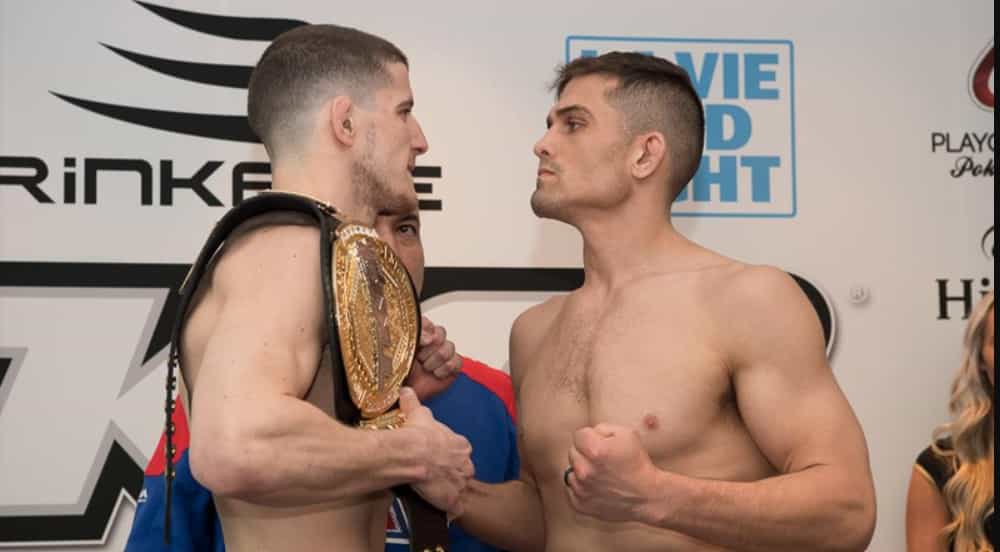
Fighters such as Georges St-Pierre and Patrick Côté came up through TKO, while others fought in MFC or King of the Cage Canada. Today, the Canadian scene has fewer big events than before, but there are still local promotions (Unified MMA, BTC, BFL, etc.) where you can build your record. Many top Canadian fighters started by dominating the local scene – for example, St-Pierre went 5–0 in Canadian promotions (even capturing a local championship) before the UFC noticed him. Focus on winning fights and improving each time; a strong professional record in regional shows is essential to get the UFC’s attent
Build a Winning Record and Get Noticed by the UFC
Success in the regional circuit should translate into a winning record, which is crucial for attracting UFC scouts and matchmakers. Aim to achieve a streak of victories against quality opponents. The UFC typically looks for fighters with impressive records and finishing ability. In fact, formal UFC recruiting channels often set minimum requirements – for example, recent application criteria for The Ultimate Fighter reality show stipulated that men must have a winning record with at least 3 professional MMA fights (women needed 2) to even be considered. This underscores the importance of proving yourself through multiple fights.
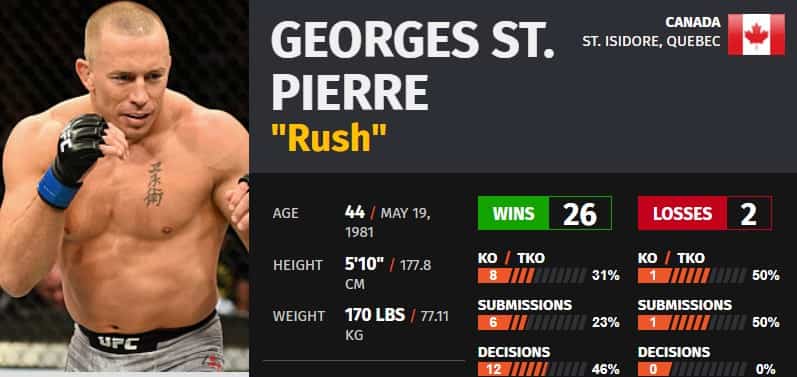
As you rack up wins, promote yourself as well. Use social media to share your fight highlights, training videos, and personality. A strong online presence can help you gain a following and catch the eye of promoters. Networking is also key: attend UFC events in Canada (when available) or nearby in the U.S., and introduce yourself to people in the industry. Sometimes UFC officials scout talent at regional events – it never hurts to have your name out there. Finally, consider getting a reputable manager or agent who has connections; they can sometimes arrange for you to be on the UFC’s radar or even get you short-notice fight opportunities when the UFC needs late replacements.
Pathways: TUF, Contender Series, and Direct Signings
There is no single “tryout” to join the UFC, but there are a few common pathways. One proven route is through reality shows like The Ultimate Fighter (TUF). TUF is a TV competition where fighters live and compete for a UFC contract. It has a history of producing UFC stars (and champions) and is open to prospects who meet the criteria (age, record, etc.). If you’re Canadian, keep an eye out for international editions or weight classes that fit you – for instance, TUF Nations: Canada vs. Australia was a season that specifically featured Canadian fighters. Winning or even just performing well on TUF can earn you a UFC deal. Another modern avenue is Dana White’s Contender Series (DWCS).
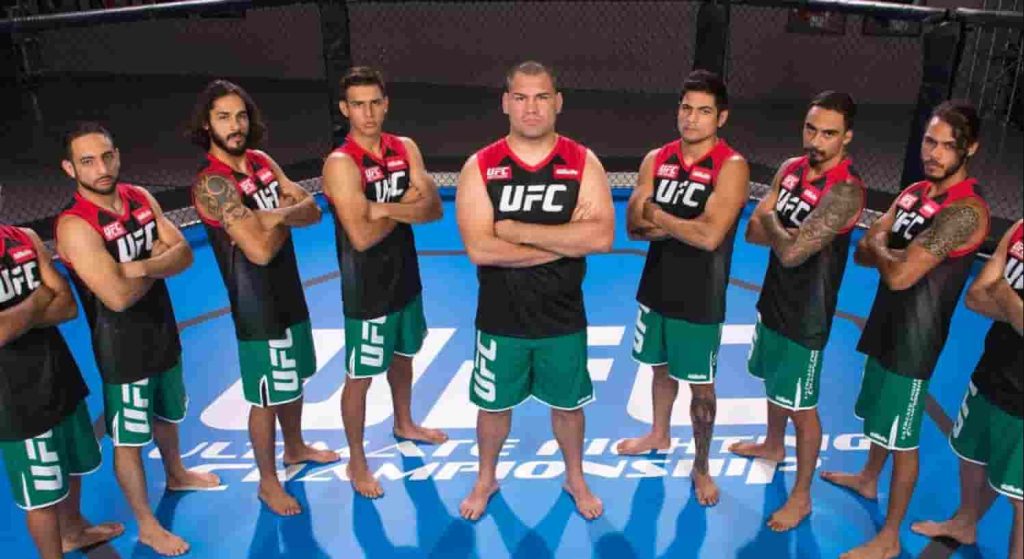
This is a show where fighters (usually with solid regional records) are invited to fight in front of UFC President Dana White on a streamed event; impressive winners often get UFC contracts on the spot. The Contender Series has become a “pipeline to the UFC for top talent”, discovering champions like Sean O’Malley and Jamahal Hill. In Season 8 alone, dozens of prospects were signed to the UFC roster through DWCS, showing how effective this route can be. Aside from these shows, the UFC also signs fighters directly who have made a name in other organizations. If you become a champion in a smaller promotion or beat a few high-level opponents, the UFC may offer you a contract outright. For Canadian fighters, this might mean dominating a regional title or even gaining experience in promotions like Bellator, One Championship, or PFL and then transferring to the UFC when the opportunity arises. Keep winning, stay ready, and be open to any pathway that presents itself.
Case Studies: Canadian Fighters’ Journeys to the UFC
Learning from real fighters’ experiences can provide valuable insight. Here are a few case studies of Canadian UFC fighters (all male) and how they made it to MMA’s biggest stage.
Georges St-Pierre – From Regional Champion to UFC Legend
Georges “Rush” St-Pierre (GSP) is perhaps the most famous Canadian UFC fighter, but he started just like any other prospect. Born in Quebec, GSP took up Kyokushin karate as a kid to defend against bullies. In his late teens, he transitioned to MMA and began fighting in Canadian promotions. At age 20, St-Pierre won his pro debut in 2002 against fellow Canadian Ivan Menjivar. He quickly amassed a 5–0 record, even winning the UCC Canadian Welterweight Championship in the process
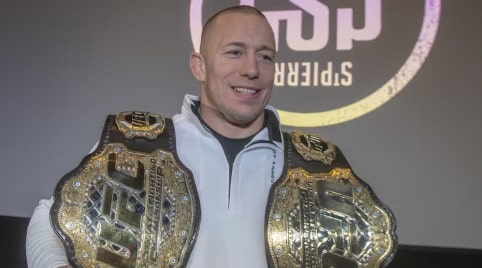
These dominant local performances earned him a call from the UFC. GSP made his UFC debut in 2004 at UFC 46, scoring a unanimous decision win over highly ranked Karo Parisyan. From there, he climbed the ranks to become a multiple-time UFC champion. St-Pierre’s journey shows that excelling on the regional scene (and being a finishing-capable, well-rounded fighter) is what it takes to get noticed. The fact that he came out of Canada’s local circuit to become a global superstar is a huge inspiration for Canadian hopefuls. (It’s no surprise GSP tops the list of top 10 Canadian UFC fighters of all time.)
Rory MacDonald – Starting Young and Earning a UFC Contract at 20
Rory MacDonald, from British Columbia, is a prime example of the “new breed” of fighters who trained MMA from day one. He began training in MMA as a teenager and even had his first professional fight at just 16 years old. Rory fought in organizations like King of the Cage Canada, where he captured the Canadian lightweight title as a teenager. By 2010, at age 20, he had compiled a perfect 9–0 record in professional fights – an outstanding feat for someone so young
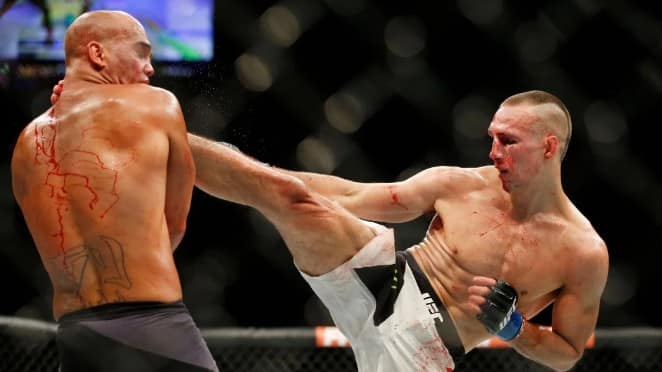
Thanks to that undefeated record and impressive skills, MacDonald was signed by the UFC at age 20. He debuted in the UFC with a submission victory and soon moved to Montreal to train alongside GSP at Tristar Gym. Rory’s rapid rise illustrates that if you start early, train hard, and dominate your competition (even outside the UFC), you can earn a contract at a very young age. His path was a direct signing due to his record and potential – proof that scouts do take note of exceptional Canadian talent making waves in smaller promotions.
Chad Laprise – Winning a UFC Contract Through The Ultimate Fighter
Chad Laprise of Ontario provides a blueprint for leveraging The Ultimate Fighter show. He began his pro career in 2010 on the Canadian circuit and went 4–0 in his first year, all first-round finishes. After a couple of fights in Bellator, Laprise seized an opportunity to join the cast of The Ultimate Fighter: Nations (Canada vs. Australia) in 2013-2014. Fighting as a welterweight on Team Canada, he won his elimination bouts, including a highlight-reel knockout of teammate Kajan Johnson
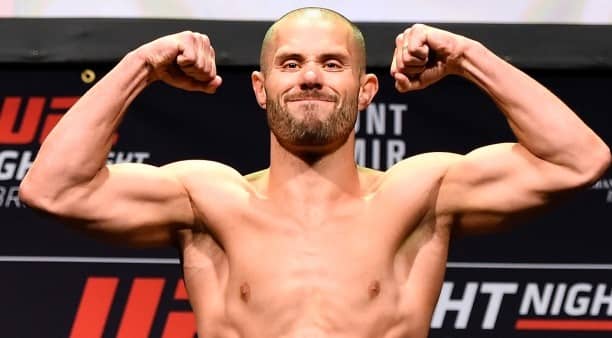
In April 2014, Laprise defeated Olivier Aubin-Mercier in the TUF Nations Finale, becoming the first Canadian to win the TUF reality show. This victory earned him the coveted six-figure UFC contract that comes with the title of “Ultimate Fighter” champion. Laprise’s UFC career was underway, and he even won his official UFC debut later that year. His story shows that going through TUF can be a fast-track into the UFC – but you must be ready to compete with other top prospects on camera. By representing Canada well and winning the show, Laprise put himself (and his hometown of Chatham-Kent) on the MMA map. For Canadian fighters, keeping an eye on TUF casting calls (especially country-specific seasons) can be a smart move.
A Few Closing Words
Breaking into the UFC is no easy feat – it requires years of dedication, resilience, and strategic career moves. Canadian fighters face the same gauntlet as anyone else, but they also carry the pride of a country that has produced some of the world’s elite MMA athletes. To get into the UFC, focus on building your skills at a great gym, accumulate a strong fight record in amateur and pro circuits, and seize every opportunity to showcase your talent (be it a TUF tryout, a Contender Series bout, or a title fight in another promotion). Learn from those who’ve succeeded before you, like the fighters profiled above, and remember that every champion started as an unknown. With the right preparation and mindset, the next time the UFC comes to Canada, it could be you making that walk to the Octagon – living proof of how hard work and passion can pave the way from a local gym to the world stage. Good luck on your journey!



